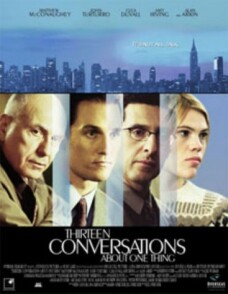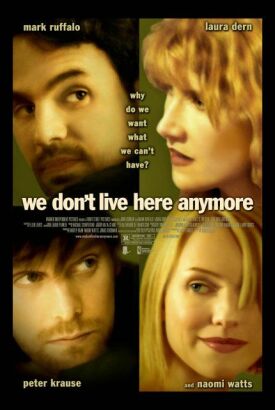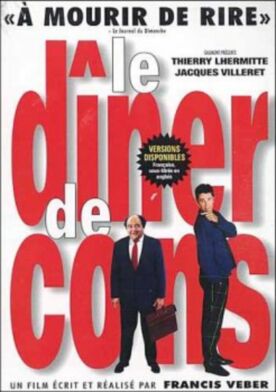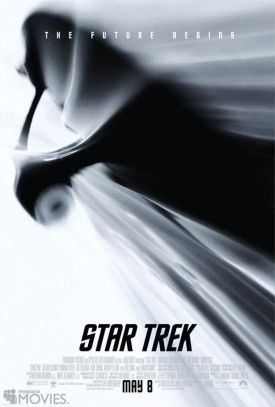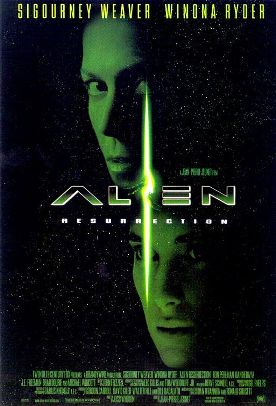Thirteen Conversations About One Thing
For a critic with formalist tendencies, Thirteen Conversations About One Thing must be a nightmare. It is crammed full to bursting with talk, as you would expect from the title, and the talk is crammed with meaning, or meanings. Every conversation has a philosophical point to it, but it is not your normal talky movie, as every philosophical point has its dramatic illustration. Just to further confuse the formalist, the whole thing has been put together out of sequence — in a way that I find rather confusing, though it is doubtless very clever. There are really three interlocked stories, as in Pulp Fiction, but instead of each being told separately, there are vignettes from each all jumbled up together, one following higgledy-piggledy upon the other, and we never do quite figure out how they fit together, except where a character from one story suddenly turns up in another.
In fact, there seems to me to be a serious time dislocation: the time frame of the vignette that follows the main title (though not the one that immediately precedes it), which is set in a bar where two chance acquaintances have a conversation about happiness, is the same as that of the concluding two vignettes, but in between some of them must happen before the bar scene and some of them must happen after it. Maybe I am just too linear-minded, but I don’t much like the sense of time-fracture this gives me. Maybe all these things could have happened, but they could not have happened in the way they are being presented to us. In Pulp Fiction, or even Memento, we always have a sense of the real time order of events even as they are being presented to us in a different order. Consequently, we are better able to accept the rest of the admittedly improbable stuff that goes on in those movies as realistic.
But here there is no such implied foundation of real time on which the fractured time of the film rests. Or at least I couldn’t discern it on a first viewing. This may be deliberate. At one point in the film a character says that life only makes sense looking backwards on it, though we have to live it forward. If that is a clue to the structure of Thirteen Conversations it implies that, from the central locus of the bar scene, we can look backwards — to the story of happy Wade (William Wise), lucky Mickey (Shawn Elliott) and bitter and resentful Gene (Alan Arkin) — or forwards — to the story of Troy (Matthew McConaughey) and his hit and run accident knocking down poor Beatrice (Clea DuVall) — or in no particular direction (to the story of Walker (John Turturro) the math professor, his affair with a colleague, Helen (Barbara Sukowa) and his split with his wife, Patricia (Amy Irving).
But that leaves us uncertain about the points at which the three stories intersect and whether or not they may be supposed to make the same kind of sense, and to illustrate each other’s points about the “one thing” of the title. That one thing, by the way, is luck. Did you think it was something else perhaps? Something rhyming with luck? No, no. The conversation in the bar pits the optimist, Troy, against the pessimist, Gene. Troy says there’s no such thing as luck. You get what you work for. Gene says there is, but that even good luck is bad luck, and he tells the story about a colleague at work who won the lottery and it made him miserable. From there Troy leaves the bar, has his accident, and begins to have an appreciation of Gene’s point of view, an understanding of luck, and how things can go wrong in a man’s life.
Bea, the girl he hits with his car, has always considered herself a lucky person, and even has a little doll that reminds her of what she considers to be the special Providence looking out for her. But her outlook on life is permanently changed by the accident. Meanwhile, vignettes from the story flowing backwards, as it were, about Gene’s place of work and how Gene got to be the embittered and lonely man he is today, seem to bear out Troy’s point about how people make their own luck. It’s all very deep, of course, but the film’s attempt to be on both sides at once rather seems to risk banality at several points. It’s not quite as simple as having Matt Munro singing “Put on a Happy Face” over the close credits (and also in the bar during the film), but then again it might be. “Heavy matters,” we mutter as we go out into the night, none the wiser.
What saves the picture from banality and in fact makes it well worth seeing, are the characters, several of which are first rate portraits by first rate actors. Above all there is Alan Arkin’s Gene McLean, who is so good that you can only wish he had more of the picture, that it were more about him, rather than using him as the personification of a human tendency. He makes the role come alive, as he has made so many other roles do before, and re-establishes his claim to be one of the least-appreciated great actors in the world. I can’t offhand think of anyone among American actors whom I would put above him. Of course, he’s never won an Oscar (though he is one of only five actors to have been nominated for one for his first screen role, as a lonely Russian sailor in The Russians Are Coming! The Russians Are Coming!). This is at least partly owing to the number of real turkeys he’s appeared in and only partly redeemed.
Almost in the same league with Gene as characters that hold, indeed rivet, our attention are John Turturro’s Walker and Clea DuVall’s Beatrice, both in wonderfully realized and completely persuasive performances. Even Matthew McConaughey and Amy Irving, who are nobody’s idea of great actors, do a pretty decent job, though McConaughey’s haunted Troy is decidedly the weakest of the main characters. A number of minor roles are also memorable, especially William Wise as Wade “Smiley” Bowman, Shawn Elliott as Mickey, the lucky winner of the lottery and Tia Texada as Dorrie, Beatrice’s lazy, complaining cleaning partner. Of course, the actors do not do it all themselves and the sister team of Jill and Karen Sprecher (Clockwatchers), who wrote it, and Jill Sprecher in particular, who directed it, are to be congratulated on a very impressive effort.
Discover more from James Bowman
Subscribe to get the latest posts to your email.

